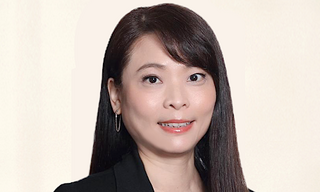An industry consultation group has recommended the discontinuation of the SGD Singapore Interbank Offered Rates (SIBOR) – widely used by many loans – in three to four years.
Instead, it proposes a shift to the Singapore Overnight Rate Average (SORA) as the main interest rate benchmark for SGD financial markets, according to the report «SIBOR Reform and the Future Landscape of SGD Interest Rate Benchmarks,» published on Wednesday by the Association of Banks in Singapore (ABS), the Singapore Foreign Exchange Market Committee (SFEMC), and the Steering Committee for SOR Transition to SORA (SC-STS).
SORA is a transaction-based interest rate benchmark underpinned by the SGD overnight interbank funding market and has been published by the Monetary Authority of Singapore since July 2005. This shift to SORA will result in more transparent loan market pricing for borrowers, and more efficient risk management for lenders, the report said.
Feedback on the proposals made in a consultation report can be submitted by 30 September, and changes to the one-month and three-month SIBOR aim to be finalized by the end of the year.
Phased Approach
The proposals arise from global efforts to reform interest rate benchmarks, and plans to reform SIBOR began in 2017 after the practice of banks borrowing from one another declined in importance following regulatory reform that arose after the global financial crisis.
As the Singapore dollar Swap Offer Rate (SOR) was to be replaced by SORA when it is discontinued by the end of 2021, the report recommended adopting a single rate for the Singapore dollar financial markets with SORA as the new benchmark rate, instead of having multiple rates.
At the same time, to ensure a smooth transition for existing SIBOR users, the report proposes for the transition to be done in a phased approach. Transition of contracts referencing the more widely used 1M and 3M SIBOR will take place after the industry has substantially completed the transition from SOR to SORA, it recommended.
Need for Change
«Major financial centers globally will be moving onto a risk-free rate (RFR) centered approach or increasing the use of their RFRs. The SORA-centered approach will better position SGD financial markets for the future,» Samuel Tsien, ABS and SC-STS chairman, said.
«It will allow users of SGD floating rate products, including retail consumers and SMEs with products that reference SIBOR today, to benefit from a deeper and more efficient market, and greater transparency,» Tsien added.


























